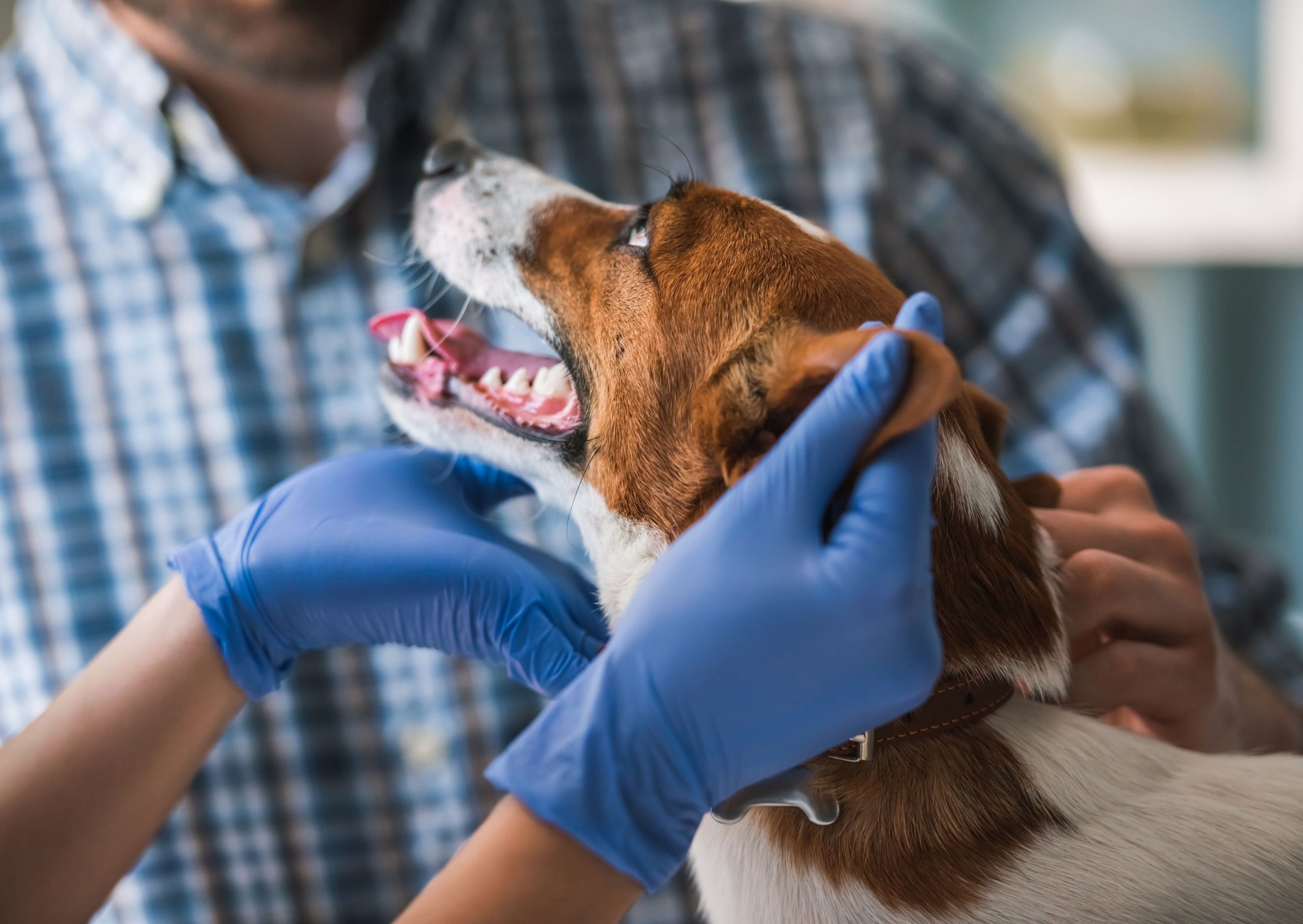Blog
The Importance of Year-Round Heartworm Prevention

Heartworm disease statistics show infections occurring in all 50 states, and Texas is ranked in the top 10. Spread by mosquitoes, heartworm disease prevention is a year-round priority.
Cats and Heartworms
Unlike dogs, there is no treatment available for cats with heartworm disease. Without early detection and intervention, heartworm disease can result in heart failure and death.
What Is Heartworm Disease In Dogs?
Heartworm disease in dogs is caused by the parasite Dirofilaria immitis, which also affects cats, ferrets, and other mammals. This large worm, reaching a foot or more in length, completes its six- to seven-month life cycle and resides in an animal’s heart and pulmonary vessels, where it can live for several years.
Adult heartworms can live in a dog for up to five years, and at the time of diagnosis. A single dog may harbor as many as 300 of these worms. During their adult life, female heartworms produce millions of offspring known as microfilariae. Microfilariae circulate mainly in the small vessels of the bloodstream.
Transmission
All it takes is for one infected mosquito to deposit microscopic heartworms in the bloodstream during a quick blood meal. Because it can take time for heartworms to develop and move to the heart and lungs, many infected pets may not show any obvious signs for a year or more.
- Damage to the blood vessels, heart and lungs can cause respiratory symptoms like coughing or wheezing, and physical weakness, and changes to weight and appetite.
- Left alone, heartworms can grow up to 12 inches long and are responsible for causing heart failure in pets.
Diagnosis
Veterinarians use blood tests to diagnose heartworm in dogs by detecting specific heartworm proteins (antigens) released by adult female worms into the bloodstream. These antigen tests are typically accurate in identifying infections with one or more adult female heartworms.
To understand the severity of the heartworm infection and develop the optimal treatment plan, veterinarians may supplement blood tests with chest X-rays, heart ultrasound (echocardiography), and a complete blood cell count.
Treatment Options
A multi-faceted drug regimen is standard for treating heartworms. Your veterinarian will advise you on the best treatment approach for your dog.
Killing the Microfilariae
Before giving the medication to kill adult heartworms, your dog will get a drug to kill the baby heartworms (microfilariae). Your dog might need to stay at the hospital for the day they get this drug, and this can happen before or after the adult heartworm shots. After the adult heartworm treatment, your dog will start on a heartworm preventative. Also, many dogs get the antibiotic doxycycline (Vibramycin®, Vibra-Tabs®) before the adult heartworm treatment to fight possible bacteria (Wolbachia) that live inside the heartworms.
Killing the Adult Heartworms
Your veterinarian will use an injectable drug called melarsomine (Immiticide®) to kill the adult heartworms in your dog’s heart and nearby blood vessels. This medication is given as a series of shots, and the exact schedule will depend on your dog’s health. A common plan involves an initial shot, a 30-day rest period, and then two more shots given one day apart. Because these injections can cause muscle pain, your dog will likely receive pain medication as well.
Complete Bed Rest
Following the injection to kill adult heartworms, the worms die within days and begin to decompose. These fragments are carried to the lungs, where they can block small blood vessels as they are reabsorbed by the body over several weeks to months. This period of resorption is when most post-treatment complications occur. Consequently, strict rest for your dog is vital for one month after the final injection. The first week after each injection is a high-risk period due to worm die-off. Many heavily infected dogs will cough for seven to eight weeks after treatment. Although rare, significant reactions require immediate veterinary attention.
Be vigilant for symptoms such as loss of appetite, shortness of breath, severe coughing, coughing up blood, fever, or depression, and contact your veterinarian immediately if they appear. Treatment for these complications usually involves anti-inflammatories, antibiotics, cage rest, supportive care, and possibly intravenous fluids.
Follow-up Treatments
Vets often use prednisone, a type of steroid, to help with problems caused by dying baby or adult heartworms. If a dog has severe heartworm disease, they might need antibiotics, pain medicine, special food, water pills for fluid in their lungs, or drugs to help their heart work better before getting the heartworm treatment.
It’s also possible that even after the heartworms are gone, some dogs will need lifelong treatment for heart problems. This can include water pills, heart medications like ACE inhibitors or beta-blockers, and special low-salt food. Your dog will be tested for baby and adult heartworms about one month and nine months after the last heartworm shot. If the test is positive, the treatment will be changed.
Recovery and Long Term Prognosis
Despite the challenges of heartworm treatment, the response is usually positive. Owners are often struck by how much better their dogs become, especially if the dog had been showing clear signs of the disease. Increased energy and vitality, a better appetite, and weight gain are common improvements.
Heartworm Prevention
Veterinarians recommend the following:
- Year-round protection: Heartworm is present in all 50 states. Talk to your veterinarian about which type of heartworm prevention medication is best for your dog.
- Mosquito Control: Reduce mosquito exposure by using insect repellents.
- Get rid of standing water: Eliminate standing water in your yard, as it provides breeding grounds for mosquitoes.
- Annual Heartworm Testing: Even with preventative medication, annual heartworm tests are recommended.
Have Questions About Heartworms?
Year-round heartworm prevention is key in keeping your pets safe from this disease. If you have questions or concerns about your pet’s health and wellness, please call us at (210) 696-1700. Our staff is always happy to help you at Ten West Bird & Animal Hospital.
